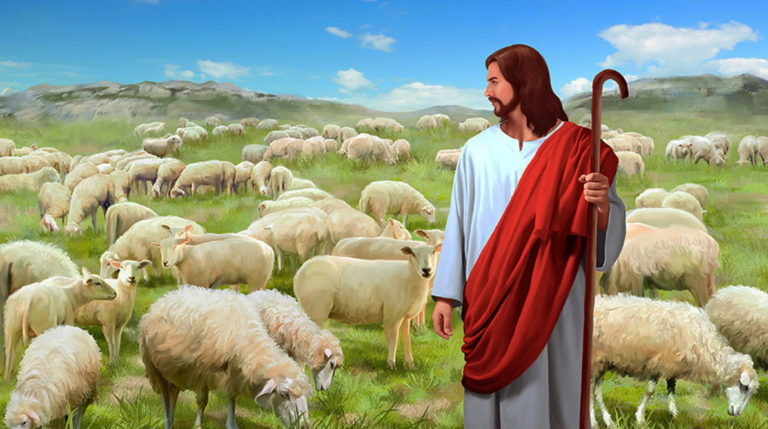This week I'd like to talk about sheep. If you've been following the news and reading comments you, like me, have most likely seen someone say, "Stop being sheep!" or even funnier, "You are all sheeple!"
And it made me think. In the Bible, doesn't Jesus ask us to be like sheep?
And before him shall be gathered all nations: and he shall separate them one from another, as a shepherd divideth his sheep from the goats: And he shall set the sheep on his right hand, but the goats on the left. (Matthew 25:32-33)
As this parable continues, the Lord praises the "sheep" on his right, and condemns the "goats" on his left. Why? Because the sheep are the ones who listen and become Christlike -- much to their own benefit. And the goats are the ones who are stubborn, who go off on their own and do things the hard way. They end up missing the point.
So, this morning I did a little quick research on sheep. This website came up quickly about "Sheep 101." Some interesting points I learned:
- Sheep tend to flock together for safety in numbers. Predators do not usually attack an organized herd.
- Sheep do indeed follow other sheep without much thinking. This is due to that same hard-wired instinct that provides safety in numbers.
- Some sheep are more intelligent than others and end up being leaders guiding the rest of the sheep.
- Sheep hate being alone -- it makes them feel vulnerable.
- When presented with conflict, sheep tend to flee and not fight.
- Sheep are amazingly observant -- very wide angle of vision, able to direct their ears, and keen smelling.
So, when Isiah says "All we like sheep have gone astray; we have turned every one to his own way;" (Isaiah 53:6), he's referring to the nature of sheep to follow one another down dangerous paths. Jesus also refers to finding the one lost sheep out of a hundred (Luke 15).
Today when one says "stop being sheep," they usually mean that someone is following blindly without questioning? How accurate is this analogy? In the sense that sheep tend to follow each other without thinking, the analogy seems appropriate. This is sometimes called "herd mentality" in terms of people. I see it a lot, myself, among all kinds of different groups of people. As mammals, we're similarly hard-wired with some of the same instincts.
But in other respects, the analogy fails. Sheep will follow other sheep because of the built-in trust, but when it comes to all other animals, they are very skeptical. They run away from anything they see as a threat. Or they will flock together so as the threaten the potential predator with their numbers. So when it comes to leaders, sheep are very picky. This is not what I would call "following blindly."
Jesus says in John 10:
"To him the porter openeth; and the sheep hear his voice: and he calleth his own sheep by name, and leadeth them out. And when he putteth forth his own sheep, he goeth before them, and the sheep follow him: for they know his voice. And a stranger will they not follow, but will flee from him: for they know not the voice of strangers." (John 10: 3-5)
And yes, I admit it. In a sense, I'm a sheep. Throughout my life, I have gained intelligence and have specialized in certain areas of expertise. And yes, like everyone else in the world, there is a whole lot I don't know. But in those areas, I've learned to recognize leaders (with my intelligence) who can guide me through those uncertain paths. And once these leaders past my muster (another sheep term -- evidently), I will indeed follow them. It's not following blindly, but rather -- like sheep -- intelligently, only following those who gain my trust.
And I certainly do rely on the Lord a lot, who knows more than all of us combined. In John 10:27, Jesus says: "My sheep hear my voice, and I know them, and they follow me," and I am one of those sheep. Are you a sheep?
To close out, I'll share this video of people failing to get sheep to follow them, and only one succeeds:

No comments:
Post a Comment